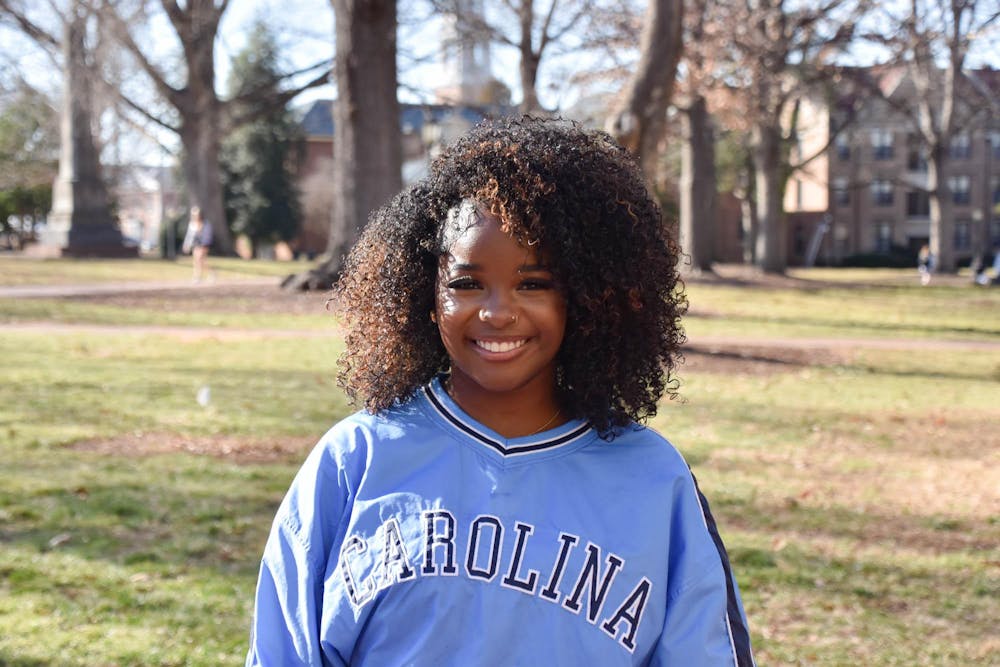As a first-generation college student, Asiah Banks said having a mentor to guide her through her first year at UNC would have been beneficial. So, she’s developing a new initiative: the Black on Track Fellowship program.
The program is led by Banks, a first-year at UNC, and hosted by the Black Student Movement, the Union of Black Men and Sis2Sis. Banks said it will launch in the upcoming academic year.
She said the fellowship’s goal is to give students a “guiding hand” for their time at UNC, a predominantly white institution.
“Being at a PWI as a Black student is already a big feat in itself,” Banks said. “Just having that person who shares common career goals or interests within Carolina would be super helpful [in] making you feel more acclimated and getting towards your end goal of graduating and leaving your own Heel print.”
Current students can submit applications to become mentors and incoming students to become mentees. By the end of this semester, Banks said participants will be matched based on their responses and can start building a connection over the summer.
She said that in order to ensure mentors and mentees build a long-lasting relationship, they will be required to meet on a monthly basis, in addition to attending fellowship and community service events. Having a mentorship program specifically catered to Black students is important, Banks said, because of shared experiences that allow for insight on navigating a PWI.
“In a time when there's going to be possibly even less of us and where we may feel even more ostracized as a group, I feel that this community will give people the sense that there's still people here for you,” Banks said. “Even though you may feel like the University may be against you as a whole, there are people here for you who want you to succeed.”
Keisha Frederick, a senior transfer student, said she found mentors through the Carolina Student Transfer Excellence program. As a non-traditional student, Frederick said that her mentors were able to help her navigate campus academics and find her place.
“Coming to a school like UNC is not only a challenge, just as a regular person, but especially as a person of color, a Black person trying to navigate these waters,” Frederick said. “So I think having something like this to let students know you can apply here, and you can make it through a four year program. You will learn and there is a community for you here.”




